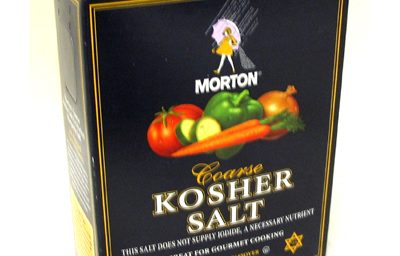You’re Probably a Federal Criminal
Alex Kozinski and Misha Tseytlin explain in a book chapter titled “You’re (Probably) a Federal Criminal” that “most Americans are criminals, and don’t know it, or suspect that they are but believe they’ll never get prosecuted.”
 Having experimented with recreational drugs is the most obvious way that people (including at least our three most recent presidents) have violated federal criminal law but the tax and regulatory codes provide thousands of arcane rules that even decent people can easily and unintentionally violate.
Having experimented with recreational drugs is the most obvious way that people (including at least our three most recent presidents) have violated federal criminal law but the tax and regulatory codes provide thousands of arcane rules that even decent people can easily and unintentionally violate.
Radley Balko and Brian Walsh provide an example in the strange case of Krister Evertson, an inventor who was hounded for two years for technical violations of hazardous cargo handling regulations as a pretext for punishing him for yet another arcane regulation involving stickers on UPS packages. [See Update]
Ilya Somin observes,
The vast scope of federal criminal law is a very serious problem. Because of it, most Americans are effectively at the mercy of federal officials whenever they might choose to come after us. We are used to thinking of “criminals” as a small subset of the population. In that happy state of affairs, criminal law threatens only a small number of people, most of whom have committed genuinely heinous acts. But when we are all federal criminals, perfectly ordinary citizens can easily get swept up in the net simply by being unlucky or because they ran afoul of federal prosecutors or other influential officials. Overcriminalization also leads to the longterm imprisonment of hundreds of thousands of nonviolent people (mostly as a result of the War on Drugs, but many for other reasons as well) who haven’t caused any harm to the person or property of others. Some 55% of all federal prisoners are nonviolent drug offenders. In addition, the ability to convict almost anyone of a federal crime means that federal officials have wide discretion to punish people who are unpopular, politically weak, run afoul of the current administration, or otherwise become tempting targets. Tellingly, the people who get imprisoned for nonviolent drug offenses are mostly poor and lacking in political influence, while middle class people who do similar things are less likely to be singled out by federal prosecutors.
Putting people in jail for consuming recreational drugs is arguably quite silly but it’s at least widely known to be illegal and something that society has long thought a good idea. But criminal penalties for technical violation of regulatory provisions — which haven’t even been passed into law by Congress or signed by the president — is simply outrageous. And the ability to selectively prosecute people who federal authorities deem worthy of incarceration for something amounts to a back door bill of attainder.
UPDATE: Bernard Finel points me to the case and notes that Evertson “transported 10 metric tons of sodium metal” and that mishandling sodium metal is really, really dangerous. So, even if Evertson was totally unaware that what he was doing wrong, stopping him from doing it was decidedly a good action by EPA. Whether Evertson ought go to prison for it is another mattter but he’s not a poster boy for the general topic.






That ignorance of the law is not an excuse has been a principle of law for at least two thousand years. However, it seems to me that when no one knows or can know what the law is, billion dollar industries are built around the complexities of the system, and the lawmakers themselves have little idea of what’s in the laws they’re enacting, serious reform is called for.
The current situation places altogether too discretion in the hands of law enforcers. That’s just a form of tyranny.
The euphemism of “experimentation” with regard to drugs i always think of as pretty silly.
As if you put on a lab coat and get a clipboard to collect data when you’re firing up a spliff of Acapulco Gold or smoking a space base to collect data on your “experiment.”
When I’m getting messed up, the last thing I’m doing is “experimenting. Let’s call it what it really is–partying!
Heh. Well, there are a large number of people who try marijuana once or twice just to see what it’s like, decide they don’t like it, and never use it again. That’s different from someone who gets high every night.
The long term problem with this is an extension of the broken windows theory. If the law becomes so complex, randomly applied, and abused, citizens will lose respect for law and government. It’s happening at an increasing pace. Throw in lawmakers who have no respect for the law and the future looks bleak.
That’s a pretty poor piece from Reason / Heritage Foundation. From the link:
Outraged? If you are, you’re an anarcho-capitalist. This law has been on the books for over thirty years.
Untrue. The jury was required to find that Kristler knew the materials he stored were hazardous waste. It was irrelevant whether he knew the particular regulations he needed to follow for storing hazardous waste. He didn’t follow them.
And we’re talking about
storingabandoning the hazardous waste for over two years. The USEPA was contacted by the owners of the property on which he had abandoned the hazardous waste. This was not, as the linked article suggests an invented crime without real victims.Well, have you ever put a little to much fertilizer on the garden or sprayed your RoundUp a little to thick on the weeds? Right there on the label it tells you that you are a criminal.
Perhaps what we need is a movement to get people to meticulously follow all laws for a day or a week. Once the economy grounded to a halt, perhaps something would change. Of course, in DC little would change since government employees can violate laws with little concern for prosecution unless they are personal gain or you fall out of favor with your agency.
Well, those people are just Sarah Palin-style quitters.
Drugs get better the more you do them. I found this to be the case. I didn’t particularly like heroin the first time I had it, but I decided to persevere and continue taking it. Now I have stuck with it and shoot up several times per day.
I also widened my scope as a result of my resolve and take daily doses of crack, meth, and powder coke.
You just got to continue taking them–eventually you will see that they no longer become an “experiment”–rather they become an integral part of your life!
In America everything is legal if you don’t get caught. And we want it that way.
No matter what you do or have done you’re not a criminal until you’ve been judged by an official judicial proceeding and the paperwork is processed.
Granted there are many bad laws on the books. Those laws need to be corrected to be in-line with State and Federal Constitutions.
But people are in jail for all sorts of silly things these days why keep trippin’ on just illegal drugs.
Expand your mind to all victimless crimes, traffic violations, internal family disputes, private property seizures for corporate use, and illegal income and property tax, just to name a few.